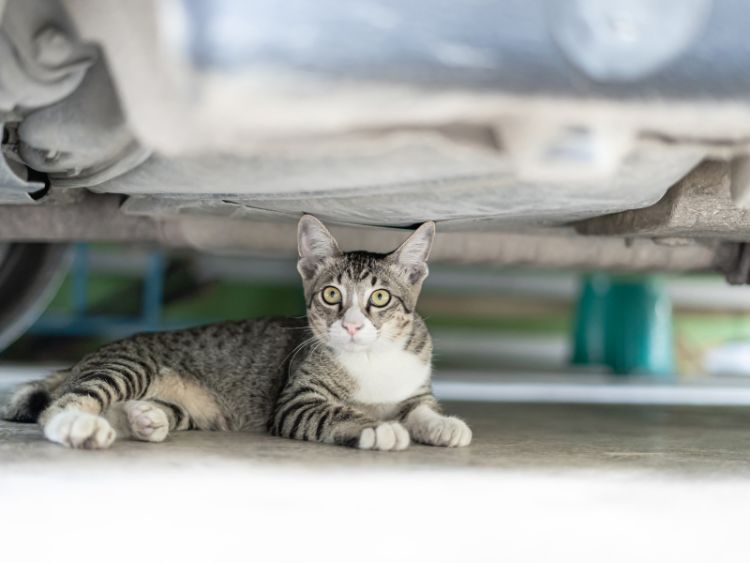Ever wondered what lurks behind those enigmatic green eyes of a black cat? Why do they seem to possess an aura of mystery, making them a favorite among pet lovers and a staple in folklore and superstitions? It’s high time we unravel the mystery behind black cat behavior, shedding light on their true nature beyond myths and misconceptions. This article promises a fascinating journey into the world of black cats, exploring their unique behaviors, debunking common myths, and providing insights that even seasoned cat owners might find surprising.
Why Black Cats Behave the Way They Do
Black cats often get a bad rap due to longstanding superstitions, but there’s so much more to these creatures than the folklore suggests. Their behavior, much like any cat, is a complex interplay of genetics, upbringing, and their environment. Here’s what really influences black cat behavior:
- Genetics: Just like other cats, the color of a black cat’s coat doesn’t determine its personality. However, it’s fascinating to note that certain behavioral traits can sometimes be observed more frequently in cats with specific coat patterns or colors, due to the genetic link between color genes and other parts of the cat’s genetic makeup.
- Environment: A black cat’s behavior is heavily influenced by its surroundings and the way it’s treated by humans. Positive interaction and socialization from a young age can make a world of difference.
- Myth vs. Reality: Despite the superstitions surrounding them, black cats exhibit the same range of behaviors as any other cat. Their so-called “mysterious” demeanor is more a reflection of our perceptions than any inherent trait.
Common Behaviors in Black Cats and What They Mean
Black cats communicate through a variety of behaviors. Understanding these can deepen the bond between you and your feline friend. Here are some common behaviors explained:
- Purring: Often a sign of contentment, though it can also indicate pain or distress.
- Tail Twitching: The motion of a black cat’s tail can indicate their mood. A gently swaying tail suggests relaxation, while a rapidly twitching tail signals excitement or agitation.
- Kneading: This comforting behavior harks back to kittenhood. It’s a sign of affection and comfort.
- Bringing Gifts: Ever found an unexpected “gift” from your black cat? This behavior stems from their instinctual hunting drive, a sign of their affection for you.
Myths Surrounding Black Cat Behavior
Let’s bust some myths and shed light on the truth about black cat behavior:
- Myth: Black cats are bad luck.
- Reality: There’s no evidence to support this superstition. Black cats are as delightful and loving as any cat, with the same range of behaviors and quirks.
- Myth: Black cats are more aggressive.
- Reality: Coat color does not influence a cat’s temperament. Aggression is more closely related to individual personality, upbringing, and environment.
How to Foster a Positive Environment for Your Black Cat
Creating a loving and stimulating environment is key to nurturing a well-behaved and happy black cat. Here are some tips:
- Play Regularly: Engage in interactive play sessions to keep them mentally and physically stimulated.
- Provide Safe Outdoor Access: If possible, allow your black cat safe, supervised access to the outdoors to explore.
- Establish a Routine: Cats thrive on predictability. Maintaining a consistent schedule for feeding, play, and cuddle times can help your cat feel secure.
FAQs
Q: Do black cats require special care? A: Black cats do not require any special care beyond what you would provide for any cat. Regular veterinary check-ups, a nutritious diet, and plenty of love are all they need.
Q: Can black cat behavior predict my luck? A: Absolutely not! This is a myth. Your black cat’s behavior is not a barometer for your luck.
Q: How can I tell if my black cat is happy? A: Look for signs like a relaxed posture, slow blinking, purring, and a tendency to stick close to you. These behaviors indicate that your cat is content and happy.
Summary
Black cat behavior is a captivating subject, rich with nuances and fascinating details. Far from the aloof, mysterious creatures of superstition, black cats are affectionate, playful, and as diverse in personality as any other cats. Understanding and respecting their unique behaviors can enhance the bond between you and your black cat, bringing joy and companionship to both your lives. So, let’s cast aside the myths and embrace the reality: black cats are simply marvelous companions, deserving of our love and admiration.

